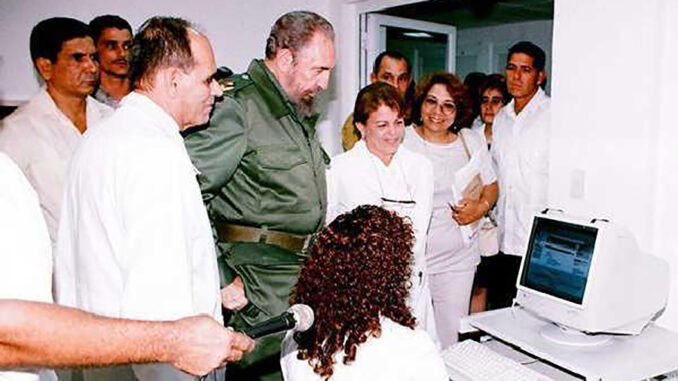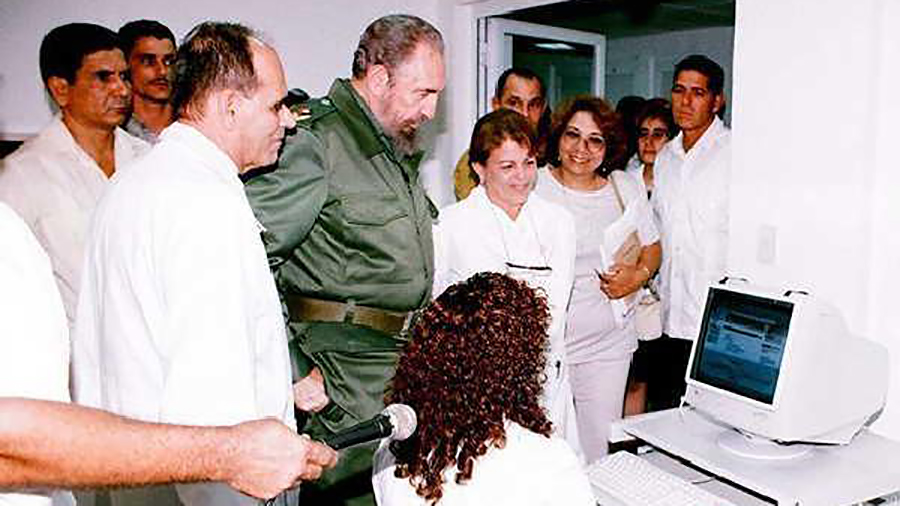
HAVANA – Unlike any statesman or political leader in the world, Fidel Castro has advanced science, research and technology to his benefit through projects that would be nearly impossible in an underdeveloped country country and mankind.
As early as January 15, 1960, he expressed his foresight that “the future of our country must be the future of scientists, the future of thinking people…”, and today Cuban science is bearing fruit. That look of anticipation.
From that moment on, Cubans understood and became participants in the efforts of a revolutionary government that called upon scientists, researchers and all the wisdom to build a present and future of well-being and prosperity for all.
Thus began a comprehensive educational development to provide universal and free educational opportunities for all Cubans, starting with a massive literacy campaign, the establishment of schools and universities in all provinces, and the publication of scientific and technical books.
Resources have also been devoted to training thousands of scientists in Cuba and abroad, building an institutional framework for science, and building science centers throughout the country and in almost all sectors with motivation, strategic design, and the presence of fundamental historical leaders.
Among all its legacies, the statute of the biotechnology sector, established in 1981, stands out, accumulating extraordinary experience and results, such as the production of interferon, which put Cuba among the world leaders in such production.
To emphasize the concern and satisfaction with this result, Dr. Manuel Limonta, head of the drug development team, recalled in his book “Fidel, Interferon and Cuban Biotechnology” that the Cuban leader The excitement of having the first bulb in my office. when he said:
“…it’s a worthwhile, very important thing, a real and objective shift that’s great for our country, our science and our future.”
Other efforts and projects followed, with no shortage of guidance and timely guidance, among them they talked about vaccines against meningococcal meningitis, the development of a system for ultramicroanalysis (SUMA), obtaining anti-hepatitis B from prixol immunogen (PPG) and recombinant streptokinase.
In addition to these achievements, monoclonal antibodies under various names, radioactive preparations for medical diagnosis and research were produced, despite the fact that the country has been blocked and occupied and suffered from not a few economic and social emergencies, the so-called extraordinary period is also like this. .
At a time when no one expected the relative role of industrial development in the fields of biotechnology and pharmaceuticals, Fidel said that science, advanced technology, research and the development of new drugs, vaccines and products should be given greater scope and layers.
Its main purpose is to create a technical and production base with a more advanced quality and control system, inter-agency integration, closed-loop work system, impact on Cuban health and food production, and conduct direct export management as a source of fiscal revenue for the national economy make a contribution.
Undoubtedly, his great contribution was the formulation of a policy of scientific and technological development imbued with ethics, humanistic values, collective work, international solidarity and promotion of various fields of scientific research.
The pinnacle of his scientific imprint is therefore the research and realization of five fully Cuban vaccine candidates, two of which are already vaccines, as clinical solutions to the Covid-19 pandemic, with proven effectiveness in containing it Influence in Cuba and other countries, which explains its international recognition.

